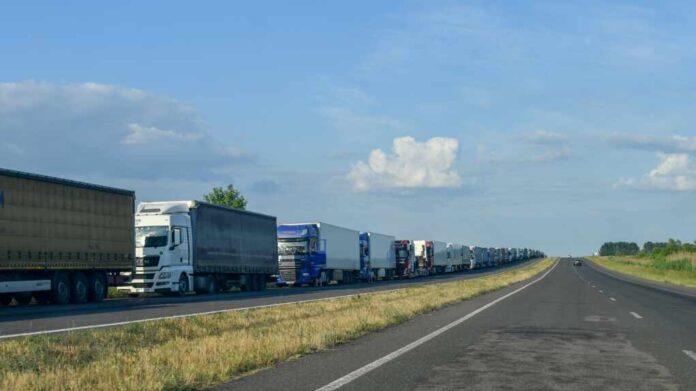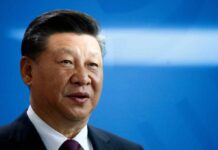
As the war in Ukraine rages on, a growing line of around 3,000 trucks remains immobile at the Polish-Ukrainian border. This blockade, initiated by Polish truckers, has now drawn out into its second week.
The truckers are protesting against what they perceive as a decline in business due to increased competition from foreign, mainly Ukrainian, truck drivers as well as criminal activity since the onset of the war there in February 2022.
The situation at the border is dire. Ukrainian Deputy Prime Minister Oleksandr Kubrakov has voiced concerns, outlining the hardships endured by drivers due to the blockade. With a staggering queue stretching over 30 kilometers at one crossing alone, the blockade has led to an immediate humanitarian concern and signals more profound economic repercussions. The usual bustle of 40,000 to 50,000 trucks crossing monthly has trickled to a mere few vehicles per hour.
European Commission spokesperson told RMF24 that the "Polish authorities, under EU law, are obliged to ensure the free movement of Ukrainian trucks at border crossings."
Polish truckers started blocking three border crossing points on Nov. 6.https://t.co/9EmplPwa4g— PontiusTrilatus 🇩🇪 (@trilatus) November 16, 2023
The protest represents more than a logistical nightmare; it’s a cry for attention to the plight of Polish truckers. Their demands involve a call to action against government inaction and a plea for preserving their livelihoods in the face of what they argue is unfair competition facilitated by the EU’s liberal transport policies for Ukraine.
Amid this protest, a broader narrative unfolds that touches upon the essence of sovereignty and the right to protect one’s economic borders. As Poland has been one of Kiev’s most formidable allies in its wartime efforts, the blockade sheds light on the nuanced complexities of international solidarity and national interests.
The blockade has tangible impacts on the ground. Reports indicate a 2.7% decrease in Ukraine’s roadway food shipments in the first half of November, with daily cargo sent through customs dwindling from a peak of 7,500 tons to 4,000 tons. This affects Ukraine’s ability to export goods and highlights the vital role that Polish corridors play in European trade.
The European Commission has weighed in, urging Poland to ensure the free movement of trucks. The term “Solidarity Lanes” has been coined, emphasizing the importance of keeping trade routes open for Ukraine’s economy amid the conflict. However, the EU’s liberalization of transport rules for Ukrainian trucks, effective until June 2024, has sparked this protest from Polish truckers who see this as a direct threat to their economic well-being.
At the heart of the blockade is the call for a reinstatement of transport permits for Ukrainian truckers, which would limit the number of non-EU drivers operating within the bloc. This move is not just about numbers; it’s about protecting the Polish trucking industry from being overwhelmed by what they perceive as an influx of Ukrainian drivers.
While Poland’s farmers had previously protested against Ukrainian agricultural imports, the current blockade by truckers underscores a similar sentiment: the defense of domestic industries against external economic pressures.
As negotiations between Poland and Ukraine seem to have hit a standstill, the blockade at the border stands as a symbol of resistance and a testament to the Polish truckers’ resolve to safeguard their economic territory. The Polish government now faces the delicate task of balancing its role as a critical ally to Ukraine by addressing the grievances of its truckers.


















